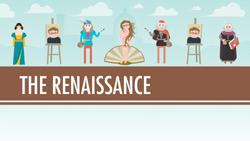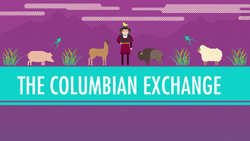 |
 |
Goals & Objectives
of the Crash Course videos: |
By the end of the course, you
will be able to:
*Identify and explain historical
developments and processes
*Analyze the context of
historical events, developments, and processes and explain how they are
situated within a broader historical context
*Explain the importance
of point of view, historical situation, and audience of a source
*Analyze patterns and connections
among historical developments and processes, both laterally and chronologically
through history
*Be a more informed citizen
of the world |





